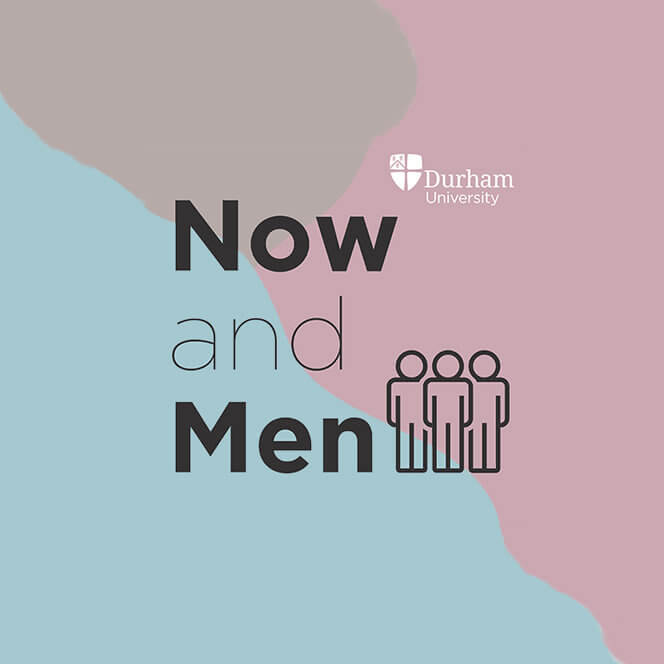Podcasts are becoming an ever more popular media source across the world. According to Statista, between 2017 and 2021 the number of people who listen to podcasts in the UK grew from 8.9 million to 19.1 million. In a survey conducted in 2021, 41 percent of UK respondents had listened to a podcast in the last month. Clearly then, podcasts are becoming increasingly important for sociologists to grapple with, both in terms of research on media and technology, but also in terms of disseminating our research into the world. Many sociologists have no doubt already found themselves appearing on a podcast as an interviewee. However, sociologists can also produce podcasts, and that is something we have sought to do.
We are researchers based in the Centre for Research into Violence and Abuse at Durham University, who are particularly interested in men, masculinities and gender equality. We (myself; Sandy Ruxton – an independent researcher and Honorary Fellow at Durham; and Professor Nicole Westmarland) set up a podcast in July 2021 to explore these issues, and called it ‘Now and Men’. Communicating our research and that of others in our field to wider audiences, and helping to promote social change, are really important to us. We therefore wanted to try podcasting because it seemed to provide a novel, impactful and exciting way of putting this kind of ‘public sociology’ into practice.
We have recorded 15 episodes so far, with each one lasting around an hour (keeping them to a reasonable length is an ongoing challenge!). We aim to release at least one new episode per month, and they are based around an in-depth, informal conversation with an expert (including other academics, but also practitioners and activists for example). We ask them about the work they do and topical social issues it connects to, but also about the personal dynamics of doing that work. For example, why they got involved in doing it the first place, what impact it has on their life, and what inspires them to keep doing it. This is because we feel that hearing people’s personal stories can have a big impact in causing others to reflect – and of course, we cannot separate sociology from the personal, because we are all part of society. Ultimately, the main goal of the podcast is to encourage people – and especially men and boys – to critically reflect on why issues of masculinity, gender equality and feminism are relevant to our lives.
We are therefore determined to shed light on men’s lives, practices and experiences in the 21st century in all their variety. Men are not a monolithic group, and we are keen to illuminate this through the podcast, including the ways in which some men bring into question dominant expectations around masculinity, and contribute to creating a more gender equal society. The episodes have covered a wide range of topics so far. One of my personal highlights has been speaking to Professor Raewyn Connell, going right back to the early stages of her career and considering how some of the hugely influential concepts she has devised such as ‘hegemonic masculinity’ can be applied to the world today. In the wake of the murders of Sarah Everard and Sabina Nessa, we have discussed violence against women and men’s role in ending it with inspiring academics Professor Nicole Westmarland and Dr Fiona Vera-Gray, as well as recording an episode on a demonstration in Sevilla, Spain, about men taking a stand against gender-based violence. We had a particularly powerful conversation with Professor Jason Arday about challenging dominant discourses around being young, Black and male in the UK. We have recorded episodes recently on militarism and masculinity, and the multiple gendered impacts and drivers of the horrendous war in Ukraine. Another personal favourite was talking to Professor Bob Pease about the role of masculinities in the climate crisis – and the need for men to change our relationships with nature.
A men and masculinities lens therefore provides fascinating and important insights into a wide variety of sociological issues. We hope the podcast provides an accessible entry point for men who may just be becoming interested in masculinity issues and the part they can play in gender equality. We also hope that it serves as a useful pedagogical tool, such as for sociologists looking for novel resources to add to their teaching, or for practitioners to utilise in work they do with boys and young men. Running the podcast is a constant learning process for us as well, and speaking to each of our guests has been a hugely edifying experience. We are by no means tech experts – one of the great things about podcasts is their ‘DIY’ nature, and that you don’t need much in the way of technical know-how or resources to get one started. That said, some initial funding from Durham University meant we were able to make use of professional equipment, software and training to help set it up. All of the different processes involved in running a podcast – from planning recordings, to preparing guests, to editing, releasing and promoting episodes – can undoubtedly be time-consuming, but I have also found it highly rewarding and enjoyable, and complementary to my work.
I can therefore highly recommend the potential of podcasting to other sociologists. There are some brilliant ‘public sociology’ podcasts already out there; such as Surviving Society, The Sociology Show, and Talking Research. One of the best things about podcasts is that they can draw attention to issues which aren’t being widely discussed within traditional media for example. However, perhaps there is also a risk that they can contribute to polarisation in society, by encouraging people to seek out voices, views and topics which they are already interested in and agree with. A goal for us in the future is therefore for Now and Men to reach audiences who might not already be familiar with or certain what they think about masculinity and gender equality; especially given the wealth of harmful (mis)information on the internet aimed at men and boys currently.
Another plus of podcasts is the engagement and co-creation which is possible with listeners – so please get in touch if you have feedback on Now and Men, or questions about how to set one up yourself. We are always interested in suggestions for future topics and guests too, so if you are researching issues connected in some way to men, masculinity and/or gender equality or know someone who is, do send us an email! I for one am excited to see how the multitude of possibilities for sharing sociological thinking with wider audiences through podcasting are taken up in the future.
Now and Men is available to listen to for free at now-and-men.captivate.fm, or on all major podcast apps (e.g. iTunes, Spotify, Google Podcasts).
Dr Stephen Burrell is a Leverhulme Early Career Fellow at Durham University and Deputy Director at Durham Centre for Research into Violence and Abuse (CRiVA). Twitter: @the_daily_panda


